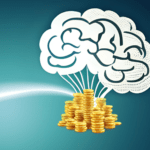Beyond productivity: Unveiling the Real Effects of Multitasking in Modern Life
Multitasking has become a buzzword in today’s fast-paced world, with many of us believing that doing multiple things at once is a skill to be proud of. However, the reality is that multitasking can have detrimental effects on our cognitive abilities, memory, and overall well-being. In this blog post, we will delve into what multitasking truly means and explore the negative consequences it can have on our brains and bodies. Brace yourself for some eye-opening insights into the hidden dangers of multitasking.

It is the act of performing multiple tasks simultaneously or switching between tasks rapidly. It involves dividing attention and focus among different activities. In today’s fast-paced world, multitasking has become a common practice as individuals try to juggle multiple responsibilities and deadlines.
There are various ways in which multitasking is commonly practiced. Some examples include answering emails while participating in a meeting, texting while driving, or working on multiple projects simultaneously. Multitasking often involves dividing attention between tasks that require different cognitive skills or mental resources.
While multitasking may seem like an effective way to maximize productivity, research has shown that it can actually have negative effects. Multitasking can reduce overall productivity and efficiency as switching between tasks requires time and mental effort. It can lead to errors and lower quality output as attention is divided, and tasks may not receive the necessary focus and attention.
Multitasking can also negatively impact decision-making abilities. When attention is divided between multiple tasks, it becomes harder to make well-informed and thoughtful decisions. This can result in impulsive or less informed choices, leading to suboptimal outcomes.
Furthermore, multitasking can inhibit creative thinking and problem-solving skills. When attention is divided, it becomes harder to think deeply and generate innovative ideas. Multitasking can limit the brain’s ability to engage in focused thinking and reflection, hindering the creative process.
While multitasking may seem like an efficient way to accomplish more in less time, it can have negative effects on productivity, decision-making, and creative thinking. It is important to consider the detrimental impacts of multitasking and find strategies to prioritize tasks and focus on one task at a time for optimal performance.
Different Ways In Which Multitasking Is Commonly Practiced
Multitasking is a common practice in today’s fast-paced society, where people often find themselves juggling multiple tasks and responsibilities simultaneously. There are several ways in which multitasking is commonly practiced:
- Switching between tasks: This involves rapidly shifting attention from one task to another, often without completing any one task fully. For example, a person may start working on an email, then switch to a phone call, and then switch to a different project, constantly moving between different activities.
- Task overlapping: This occurs when one task is started before another task is completed. For instance, a person may start writing an article while attending a virtual meeting, trying to work on both tasks at the same time.
- Task interleaving: This involves working on different tasks simultaneously, but in a sequential manner. For example, a person may spend a few minutes on one task, then switch to another task for a few minutes, and continue alternating between tasks.
While multitasking may seem like an effective way to get more done in less time, research has shown that it can actually have negative effects on productivity and efficiency. It can lead to reduced focus, increased errors, and a decrease in overall performance. Additionally, multitasking can impair decision-making abilities and inhibit creative thinking and problem-solving skills. It is important to recognize the limitations of multitasking and prioritize tasks in order to work efficiently and effectively.
The Negative Impact of Multitasking On Productivity and Efficiency
Multitasking, the act of performing multiple tasks simultaneously, is often seen as a valuable skill in today’s fast-paced world. However, the reality is that there are negative effects of multitasking that can have an impact on productivity and efficiency.
When we multitask, our attention becomes divided among various tasks, which leads to decreased focus and concentration. As a result, each task takes longer to complete, and our overall productivity suffers. Switching between tasks also incurs a “switching cost,” as it takes time for our brains to refocus and get back into the flow of a task.
Additionally, multitasking can lead to more errors and mistakes. When our attention is split between multiple tasks, it becomes easier to overlook important details or make hasty decisions. This can result in lower quality work and the need for time-consuming rework or corrections.
Furthermore, multitasking can contribute to increased stress levels. Trying to juggle multiple tasks simultaneously can lead to feelings of overwhelm and a constant sense of urgency. This can negatively impact our mental well-being and overall job satisfaction.
To illustrate the negative impact of multitasking on productivity and efficiency, consider the following points:
- When we multitask, it takes an average of 23 minutes and 15 seconds to regain our full focus on a task after being interrupted.
- Studies have shown that frequent multitaskers have decreased cognitive control and struggle with filtering out irrelevant information.
- Multitasking can decrease our ability to retain information and negatively impact our long-term memory.
Multitasking may seem like an efficient way to tackle multiple tasks, the reality is that it often leads to decreased productivity, more errors, and increased stress. Developing strategies to minimize multitasking and focus on one task at a time can greatly enhance our efficiency and overall job performance.
The Negative Impact of Multitasking on Decision-making Abilities
Multitasking, the act of performing multiple tasks simultaneously, has become a common practice in our fast-paced world. However, it is important to recognize the negative effects that multitasking can have on decision-making abilities.
When we try to do multiple tasks at once, our attention becomes divided, and we are unable to fully focus on each task. As a result, our ability to make thoughtful and well-informed decisions is compromised. We may make impulsive or hasty decisions without fully considering all the available information. This can lead to mistakes, poor judgment, and missed opportunities.
Furthermore, multitasking can cause information overload and cognitive overload, making it difficult to process and retain information effectively. It becomes challenging to weigh the pros and cons of a decision, analyze complex situations, and think critically. Our cognitive resources are stretched thin, preventing us from making sound decisions.
Here are some negative effects of multitasking on decision-making abilities:
- Reduced attention and focus: Multitasking diverts our attention from important details, leading to oversight and mistakes in decision-making.
- Increased errors: Attempting to juggle multiple tasks increases the likelihood of errors and oversights in decision-making.
- Impaired analysis: Multitasking limits our ability to thoroughly analyze information and consider all relevant factors before making decisions.
- Decreased creativity: Multitasking inhibits the creative thinking necessary for innovative and out-of-the-box decision-making.
- Poor judgment: Divided attention and cognitive overload can impair our ability to make informed and strategic decisions.
To enhance decision-making abilities, it is crucial to prioritize tasks, eliminate distractions, and focus on one task at a time. Giving each task your complete attention allows for better analysis, critical thinking, and ultimately, more effective decision-making.
Key Takeaways:
In conclusion, multitasking may seem like an efficient way to handle multiple tasks, but it actually has negative consequences. It reduces productivity, leads to errors, impairs decision-making, and inhibits creativity. Prioritizing tasks and focusing on one task at a time is essential for optimal performance. By minimizing multitasking, we can improve productivity, make better decisions, and foster creativity. It’s important to recognize the limitations of multitasking and embrace a more focused approach to work and life. This will help us unlock our true potential and achieve greater success.
Action Steps To Cultivate
Experience the extraordinary with our groundbreaking neuroperformance programs. Over the course of just 12 weeks, witness a remarkable transformation that permeates every facet of your life: career, daily performance, health, wellness, cognitive function, habits, relationships, energy, and personal and spiritual growth. What sets us apart is our unwavering focus on the brain as the ultimate catalyst for change.
Unleash your full potential as we guide you through a journey of learning, self-discovery, and profound metamorphosis into your highest self. To witness the magic firsthand, explore our home-page brimming with captivating videos that promise to inspire and revolutionize your life. Take the first step today and embark on the path to unlocking your true potential. Explore our programs now.










